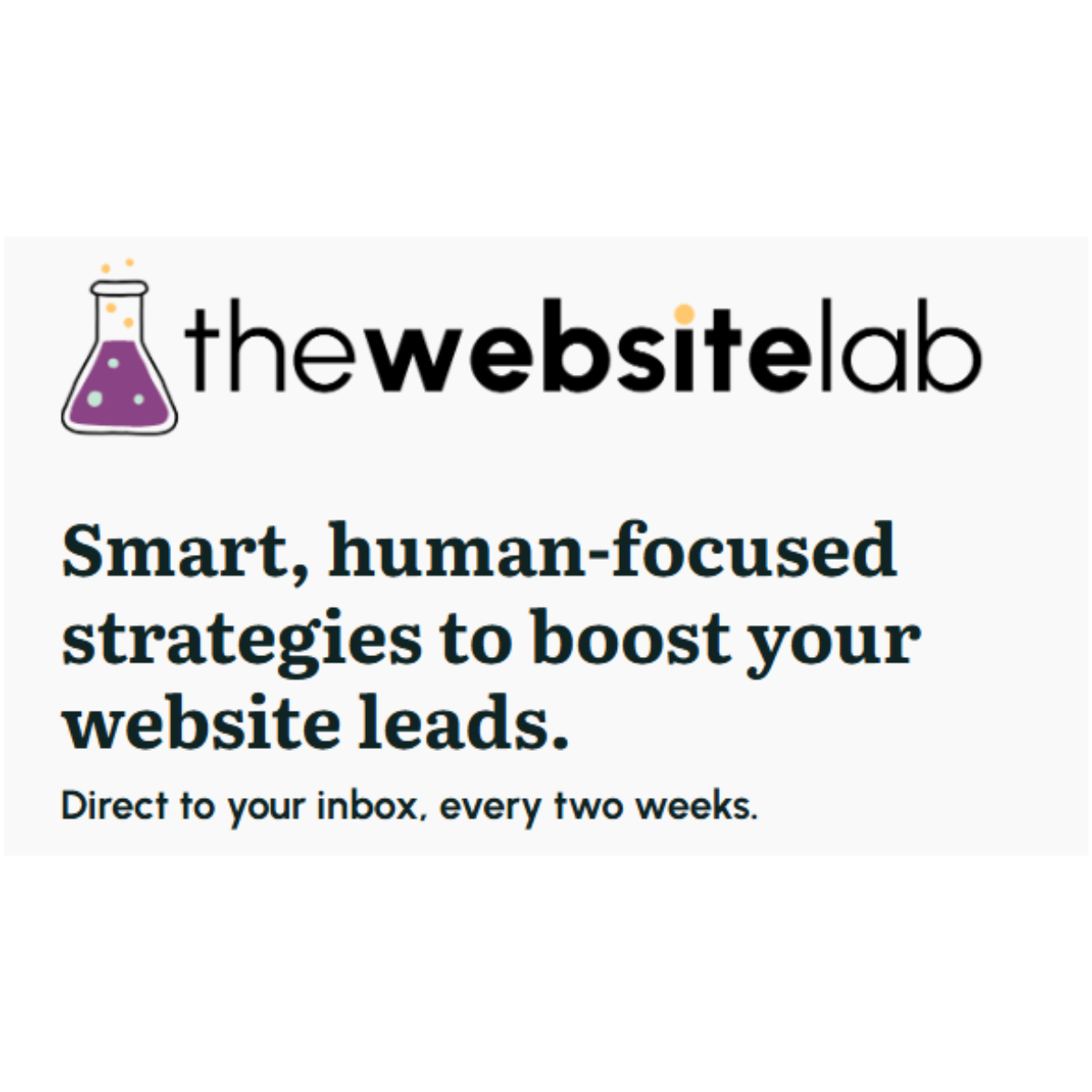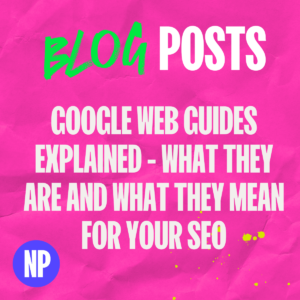(This is the 26/08/2025 issue of my newsletter – subscribe here)
Hey hey,
Two bits of data dropped this week that should make every “GEO expert” on LinkedIn crawl under a rock and stay there.
First up, Ahrefs released data showing ChatGPT drives less than 0.2% of traffic to websites. That’s based on almost 45,000 sites, so it’s not some tiny sample size we can dismiss. They’ve been tracking this stuff for months and the numbers are consistently dire.
Then Search Engine Land reported that ChatGPT traffic to websites dropped 52% in just one month. Reddit and Wikipedia are now hoovering up citations while branded websites get ignored. The top three sites grab 22% of all citations – everyone else is fighting for scraps.
Think about it – ChatGPT’s entire business model depends on keeping people on their platform, not sending them to yours. Success for ChatGPT means scraping your content to answer questions without anyone ever visiting your website.
So when these “GEO experts” charge you thousands to optimise for AI search, they’re basically helping you become a free content farm for OpenAI, for nothing much in return. You’re fighting to get your expertise stolen more efficiently.
Meanwhile, those same experts are ignoring Google – the platform that still drives the vast majority of website traffic. But apparently proper SEO doesn’t sound sexy enough to flog premium courses about these days.
The whole thing would be hilarious if people weren’t actually paying for this bullshit.
What you’ll find inside
1 | The maths that shows optimising for AI search is even more pointless than we thought
2 | Your GEO jargon translator and why I’m talking about it so much
3 | Your free Google Business Profile tip that actually drives traffic
4 | Why AI SEO “hacks” will destroy the time and money you’ve spent on SEO
Let’s dig in, shall we?
The maths that GEO experts don’t want you to see
The overall 0.19% figure is depressing enough, but when you drill down a bit more, the figures show a level of sadness I haven’t felt since I thought Joey was going to choose Dawson (#TeamPacey).
ChatGPT drives just 0.2% of traffic in Europe. But when you look at the industry breakdowns, it gets even worse.
Business and Industrial? ChatGPT manages 1.0% of traffic share.
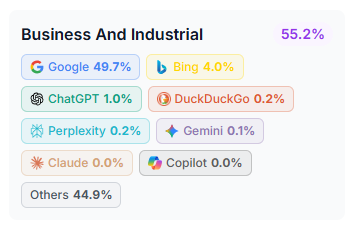
Jobs and Education scrapes 0.4%.
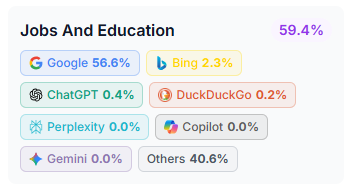
Computers and Electronics also hits a paltry 0.4%.
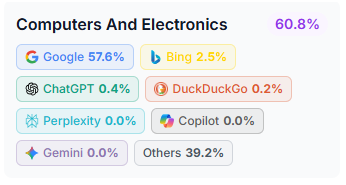
Meanwhile, Google’s sitting there with 50%+ traffic generation across every single category.
So the very businesses being targeted by those GEO gooroos – B2B services, recruitment agencies, tech companies – are seeing the lowest AI search traffic of all. These “experts” are charging premium rates to optimise for platforms that send virtually no traffic to the exact types of businesses they’re selling to.
It’s like setting up a shop selling umbrellas in the Sahara Desert, then charging people thousands to learn your “innovative rain preparation strategies.”
But the thing that really pisses me off is that these consultants know the numbers. They’ve got access to the same data as the rest of us. Yet they’re still out there selling expensive “solutions” to problems that barely exist, while businesses ignore Google – the platform actually sending them customers.
The disconnect between AI search hype and business reality isn’t just misleading anymore. It’s becoming genuinely harmful to businesses who should be focusing on platforms that actually drive revenue.
My GEO jargon translator posts
I’ve been having a bit of fun on LinkedIn this week, translating GEO bullshit into plain English. I mean, someone needs to point out that “chunking” is just good writing, “RAG” means looking stuff up in a database, and “vector embeddings” is not as sexy as it sounds.
Why am I doing this? A potential client who isn’t in the tech industry as such asked me if they should be focusing on “AEO rather than SEO” because their WhatsApp group told them to. It made me realise that the whole GEO bollocks is moving into more mainstream business, and it pissed me off.
You can catch all my GEO jargon translator episodes on my LinkedIn (ring the bell on my profile to make sure you don’t miss any) – there’s at least another 8 coming because these consultants have invented enough bollocks terminology to fill a small dictionary.
Your free SEO tip
Stop ignoring Updates on your Google Business Profile. These mini-posts appear directly in your business listing and most businesses completely ignore this feature.
Post weekly updates about offers, events, news, or helpful tips. Include a call-to-action button and work in relevant keywords naturally. It’s fresh content that Google loves, keeps your listing active, and can boost your local visibility.
Takes 2 minutes, costs nothing, and works – unlike optimising for platforms that drive 0.2% of your traffic.
(I use Metricool to post all my new blog posts to my GBP automatically – it’s really easy to set up (aff link: https://f.mtr.cool/MLVLHJ ) )
AI SEO “hacks” that will destroy your website
My older blog post about dodgy AI SEO techniques is getting more relevant by the day. Mass AI content dumps, fake review generation, hidden AI text – these aren’t shortcuts to success, they’re express tickets to penalty town. (I spent way too long looking for a “Toot Toot, Motherf#cker gif, because in my head that’s a quote in a film, but I couldn’t find one, so just imagine it’s here.)
These techniques don’t just fail, they actively damage your legitimate SEO work. When Google penalises your site, it’s not just the dodgy content that suffers – your entire domain loses authority.
What am I working on?
This week I’m doing some deep-dive keyword research for a niche recruitment agency, still tweaking copy for my auction client, and rewriting landing pages for a marketing agency who learned the hard way that AI content at scale with no human oversight is most definitely NOT the way to go.
Plus my usual SEO retainers, some SEO 1:1s, and updating some modules on my non-wanky SEO course.
That’s it for now,
Always non-wanky
Nikki
P.S. Give that Google Posts tip a try and let me know how you get on – it’s one of those features that’s hiding in plain sight but most businesses forget about.
